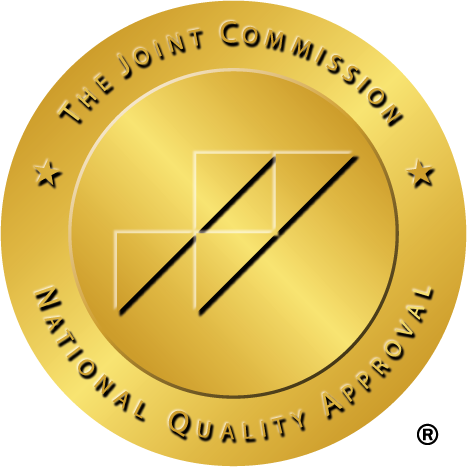KEY POINTS
- Neurocognitive tests and neuropsychological tests are used to assess cognitive function and neurological conditions, but they differ in their scope and detail.
- Both of these tests may be used to assist in diagnosing a variety of neurological and cognitive conditions and developing a targeted treatment plan.
- These tests used structured tasks and activities that are designed to measure specific cognitive functions, often against tests taken by others.
Neurocognitive and neuropsychological tests are essential tools used to assess and diagnose various cognitive and neurological conditions. These tests offer insights into your brain function and cognitive abilities, helping your healthcare team to identify and treat a range of disorders.
Learn more about neurocognitive and neuropsychological tests, how they’re used, and what to expect from the experience.
SPEAK WITH AN ADMISSIONS COUNSELOR TODAY
What Are Neurocognitive and Neuropsychological Tests?
Neurocognitive and neuropsychological tests assess memory, math skills, language skills, visual and spatial skills, and other abilities related to cognitive and psychological function to diagnose a health condition.
One of the common cognitive and neuropsychological tests is used to assess the severity of Alzheimer’s disease, which shows changes in executive function levels like poor memory or problem-solving skills.
Neurocognitive and neuropsychological tests can be helpful for any condition that involves mental function. They may be used to test general intellect, language skills, attention or concentration, cognitive processing speed, learning and memory, reading comprehension, reasoning skills, mood and personality, or executive function like multitasking, time management, or impulse control.[1]
Differences Between Neurocognitive and Neuropsychological Tests
Though neurocognitive and neuropsychological tests are similar, there are some key differences between them.
Neurocognitive tests assess functions like memory, attention, language, and executive functions. They often use standardized assessments. They’re used to evaluate general cognitive abilities and changes over time, usually in the context of cognitive impairments or neurodegenerative conditions.[2] Often, neurocognitive tests are computer-based tests that measure processing speed, memory, and problem-solving abilities.
Neuropsychological tests are more focused on cognitive abilities and behaviors with comprehensive and detailed testing, including tests for attention, memory, executive function, language, and visual and spatial reasoning. They help to diagnose specific brain disorders and cognitive deficits and differentiate between psychiatric disorders and neurological conditions.[3]
Typically, neuropsychological tests use structured assessments administered by neuropsychologists, including tasks related to memory, language, problem-solving, and executive function.
How Do Cognitive and Neuropsychological Tests Work?
Neurocognitive and neuropsychological tests are done in a number of ways. Your healthcare provider may ask you to complete surveys about your psychological symptoms, mood, or decline in cognitive functioning. They’ll also review your medical and psychological history and professional background.
This assessment is important to help your healthcare provider choose the tests that are most appropriate for your needs. There are several tests that may be used to test your communication, motor skills, memory, or cognition, which often involve completing tasks like solving puzzles or writing.
The tests vary in difficulty, but the goal isn’t to “ace” them. The purpose of testing is to identify your personal strengths and weaknesses to inform your diagnosis.
Most neurocognitive and neuropsychological tests are standardized, which means they’re delivered the same way to every participant. This allows your provider to compare the results to those of others in the same demographic or in similar circumstances.
Once completed, your provider will write a report interpreting your results, your strengths and weaknesses, and any recommendations or interventions to improve your cognitive function. It typically takes a few weeks to score the tests and write the report.
Uses for Cognitive and Neuropsychological Tests
Cognitive and neuropsychological tests are used to understand the relationship between your brain’s health and your behavior and your cognition, or mood and thought processes. These tests can help with:
- Diagnosis: Your doctor may use a neuropsychological test to understand issues with thought processes and understanding, such as poor memory. This allows your doctor to differentiate the normal changes that occur with aging or conditions like depression and anxiety.
- Cognition problems: Your doctor may order tests if you’ve experienced a neurological injury like a traumatic brain injury or stroke. The test may be used as a baseline if you have a history of dementia in your family or are at a high risk of brain injury to watch out for any declines.
- Treatment and interventions: Doctors can use the results of these tests to develop a care plan or rehab focus. They can also be used to determine what skills are strong or weak and develop a plan to improve them.
Neurocognitive and Neuropsychological Tests for Diagnosis
Though neurocognitive and neuropsychological tests aren’t used to diagnose any condition on their own, they provide vital information that can help to diagnose and manage conditions like:[4]
- Brain tumors
- Dementia
- Alzheimer’s
- Epilepsy
- Learning disabilities
- Traumatic brain injury
- Stroke
- Parkinson’s disease
- Multiple sclerosis
When Are Neurocognitive and Neuropsychological Tests Recommended?
Neurocognitive and neuropsychological testing may be used when there are concerns about cognitive function or symptoms of cognitive impairment are present. Here are some situations when tests may be recommended:
- During a diagnostic process for neurological or psychiatric conditions
- To assess cognitive changes in people with known conditions
- Following a brain injury or stroke
- To evaluate cognitive function with developmental disorders or learning disabilities
- When there’s an abrupt change, such as personality changes or short-term memory loss
What to Expect from Neurocognitive and Neuropsychological Testing
If you’re getting neurocognitive or neuropsychological testing, you may feel nervous. There’s nothing to worry about, but it’s best to be prepared and well-rested to get the most accurate results. Make sure you get a good night’s sleep, eat a healthy breakfast, and take your prescribed medications unless your doctor says otherwise.
Depending on the testing protocol, it may take several hours to complete the tests. You may feel tired or frustrated by the end, so plan to relax when you return home. If possible, take care of any responsibilities you have in advance to avoid working yourself too hard after testing.
Neurocognitive and Neuropsychological Testing for Better Treatment Plans
Neurocognitive and neuropsychological tests are helpful tools to learn how the brain is functioning and diagnose and treat a variety of mental health conditions. With the insights from the test, healthcare providers can develop tailored treatment plans that may improve treatment outcomes.
SPEAK WITH AN ADMISSIONS COUNSELOR TODAY
Related Topics
Frequently Asked Questions
Sources
[1] Cognitive and neuropsychological tests. Stanford Health Care. (2017, September 11). Retrieved from https://stanfordhealthcare.org/medical-conditions/brain-and-nerves/dementia/diagnosis/cognitive-neuropsychological-tests.html on 2024, August 29.
[2] de Oliveira, M. O., & Brucki, S. M. D. (2014). Computerized neurocognitive test (CNT) in mild cognitive impairment and alzheimer’s disease. Dementia & neuropsychologia. Retrieved from https://www.ncbi.nlm.nih.gov/pmc/articles/PMC5619117/ on 2024, August 29.
[3] Schaefer, L. A. (2023, May 16). Neuropsychological assessment. StatPearls [Internet]. Retrieved from https://www.ncbi.nlm.nih.gov/books/NBK513310/ on 2024, August 29.
[4] Kohli, A., & Kaur, M. (2006, July). Wisconsin card sorting test: Normative Data and experience. Indian journal of psychiatry. Retrieved from https://www.ncbi.nlm.nih.gov/pmc/articles/PMC2932989/ on 2024, August 29.
[5] Watkins, M. W., Canivez, G. L., Dombrowski, S. C., McGill, R. J., Pritchard, A. E., Holingue, C. B., & Jacobson, L. A. (2022). Long-term stability of Wechsler Intelligence Scale for Children-fifth edition scores in a clinical sample. Applied neuropsychology. Child, 11(3), 422–428. Retrieved from https://doi.org/10.1080/21622965.2021.1875827 on 2024, August 29.
[6] Glenn, J. M., Bryk, K., Myers, J. R., Anderson, J., Onguchi, K., McFarlane, J., & Ozaki, S. (2023). The efficacy and practicality of the Neurotrack Cognitive Battery assessment for utilization in clinical settings for the identification of cognitive decline in an older Japanese population. Frontiers in Aging Neuroscience, 15. Retrieved from https://doi.org/10.3389/fnagi.2023.1206481 on 2024, August 29.



